Digital Skills Program for TVET Teachers in Rwanda
- Title
-
Digital Skills Program for TVET Teachers in Rwanda
- Research Institute
-
European School of Management and Technology GmbH (ESMT Berlin)
- Funding period
-
from: 01.03.2023
to: 30.09.2025 - Country and Region
-
Rwanda
- Sector
-
Education (TVET), digitalisation
- Development Organisation
-
Deutsche Gesellschaft für Internationale Zusammenarbeit (GIZ)
- Research Design
-
e.g. DiD; RCT etc.
Project description
Short Description
Evaluation of a Digital Skills Programme for TVET Teachers in Rwanda
Imparting practical skills and work-readiness lies at the heart of policies aimed at integrating the youth into the labour market. Technical and vocational education and training (TVET) is a central pillar of these policies, particularly in African countries where university education is in scarce supply and youth unemployment is high. With the suspension of in-person training, COVID-19 derailed conventional TVET, but online training was also introduced as a potential alternative for parts of the training programme.
DEval will fund a rigorous impact evaluation of a large-scale Digital Skills (DS) training programme, with the objective of evaluating the impact of this programme on teachers’ digital and pedagogical competence, their educational delivery as well as students’ exam performance. A secondary objective is to study the best way of motivating teachers to complete the training course.
Context
Digital literacy is a key development policy priority of the Rwandan government. This goal is explicitly mentioned in medium- and long-term commitments made by numerous government bodies spanning Rwanda’s Finance & Economics, ICT and Education ministries. TVET DS training is an important piece of the Rwandan government’s toolkit in achieving these goals.
Innovation & Method
The primary intervention evaluated in this project is a nationwide scale-up of an online digital skills training and certification programme. A 2021 pilot of this intervention covered 2,500 TVET teachers. This intervention will cover Rwanda’s remaining 4,000 TVET teachers across its 30 districts in all 450 vocational training schools devoted to all 10 sectoral specialisations. Teacher training will be coordinated by 80 master trainers, who oversee roughly 50 teachers each.
The self-paced online DS training course will comprise digital literacy for the office (e.g. spreadsheets and presentation skills); DS for teaching (e.g. online teaching and assessment), and teacher wellness (e.g. mental health and screen time). In addition, multiple behavioural interventions will be implemented in order to increase participation and completion. These behavioural interventions will likely include encouragement from the relevant government ministry, reminders from master trainers and text messages from peers.
A randomised phase-in design will be used to evaluate the main DS training intervention. From the experimental subject pool of 4,000 teachers, the first cohort of roughly half of all teachers at approximately 225 schools (treatment group) will be randomly assigned to gain access to the DS training programme in 2023. The second cohort, comprising the teachers at the remaining 225 or so schools (control group), will gain access to the programme in 2024. Both cohorts will be tracked until early 2025.
This project aims to add to the academic literature on the subject by examining the effect of digital skills teacher training. This is important, given the growing popularity of digital technologies in complementing and scaling post-secondary education in developing countries in general and in African countries in particular.
Expected results/Research questions
Two research questions are posed. Firstly, does DS training improve teacher and student outcomes? The former includes teachers’ digital and pedagogical competence and their educational delivery while the latter includes students’ exam performance.
However, non-completion of the programme is a major challenge with online training. This prompts our second research question: what is the most effective way to motivate teachers to complete the DS training programme?

